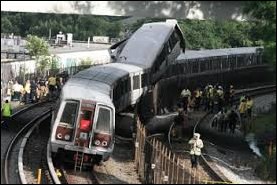 When last we visited the matter of turn-stile jumping and other ways of cheating the Washington Metro mass transit system, Washington City Council had voted to decriminalize the nonpayment of fares. It wasn’t hard to predict that Virginians would not look kindly upon the decision.
When last we visited the matter of turn-stile jumping and other ways of cheating the Washington Metro mass transit system, Washington City Council had voted to decriminalize the nonpayment of fares. It wasn’t hard to predict that Virginians would not look kindly upon the decision.
Now comes the inevitable reaction.
Paul C. Smedburg, chairman of the Northern Virginia Transportation Commission, has written Washington Mayor Muriel Bowser asking the city to consider the implications of its action. Washington Metropolitan Area Transit Authority officials, the letter said, project that decriminalization would result in the loss of revenue and shift of “tens of millions of dollars … to Virginia taxpayers and riders.”
We believe that decriminalizing fare evasion in the District sends the wrong message and is unfair to the overwhelming majority of WMATA’s riders who pay their fares. It also places an undue financial burden on our taxpayers and riders.
In Virginia and Maryland, the same legislation that provided dedicated funding for WMATA also instituted a 3 percent cap on increases in WMATA’s operating subsidy for our jurisdictions. The Council’s action will jeopardize WMATA’s operating revenues and we fear this could necessitate service cuts or fare increases to meet the requirements of the 3 percent cap.
Smedburg suggested that Washington City Council consider WMATA’s invitation to create a program to provide subsidized fare cards to low-income residents.
The District has already developed “fare buydown” programs, like Kids Ride Free, for specific categories of riders. With your leadership, we are confident that the District could develop and fund such a program that would preserve equity for all riders, protect the riding public across the region, and maintain the political framework that has led us to achieve dedicated funding for the WMATA.
In other news today… The Virginia Department of Transportation announced that state police would intensify HOV enforcement on Interstate 66 express lanes inside the Beltway this Thursday. The last HOV enforcement netted a total of 32 HOV violators and 19 other citations.
Violation of HOV rules is a traffic infraction punishable by fines including $125 for a first offense, $250 for a second offense within a period of five years from a first offense, $500 for a third offense within a period of five years from a first offense, and $1,000 for a fourth or subsequent offense within a period of five years from a first offense.
No mention in the VDOT press release of HOV violations being a criminal offense.


